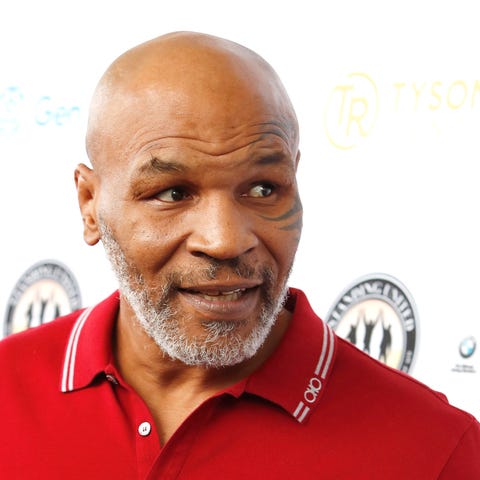WILL TURKEY AND CHINA BECOME FRIENDS? by
Soner Cagaptay with
Deniz Yuksel PolicyWatch 3166
August 14, 2019
Despite their limited economic relations and ongoing differences over the Uyghur issue, the two countries could grow closer if Western partners fail to provide the financial boost Turkey needs so badly.
READ THIS ITEM ON OUR WEBSITE
In June, China’s central bank reportedly transferred $1 billion to Turkey as part of a currency swap agreement that dates back to 2012. While the influx of cash is the largest Beijing has ever provided to Ankara, the most it can do is lend a minor short-term boost to the country’s dwindling foreign exchange reserves. For China to fully sponsor Turkey’s struggling economy, the two governments would have to overcome key historical policy differences, especially regarding the Turkic Uyghurs in China’s restless Xinjiang region.
ECONOMIC TIES UNDER ERDOGAN
With few natural resources of its own, Turkey relies on foreign capital injections and strong ties to international markets for growth. President Recep Tayyip Erdogan’s electoral success since 2003 has been largely driven by the record amount of foreign direct investment (FDI) the country has attracted during his tenure, mostly from Europe. The resultant economic growth boosted his voter base¾many of his diehard fans are attracted to him because he helped lift them out of poverty.
More recently, however, the economy has been shrinking amid financial volatility, political uncertainty, rising unemployment (currently 15 percent), and rampant inflation (17 percent). Erdogan therefore needs more FDI to finance the growth he relies on politically.
Given the size of Turkey’s economy—just under a trillion dollars—only the U.S.-headquartered International Monetary Fund would have the funds necessary to rescue it in case of financial meltdown, as Erdogan is well aware. He also realizes that Russia cannot afford to play that role on its own. In theory, China could do so, but this would require the two countries to bridge their differences on the Uyghur issue.
In June 2018, Erdogan sent Foreign Minister Mevlut Cavusoglu to seek economic assistance from Beijing at a time of dire need—the lira was collapsing, a wider meltdown loomed, and relations with Washington were in crisis over the Pastor Andrew Brunson affair and related U.S. sanctions. Yet Cavusoglu returned home with no promise of a Chinese rescue.
This result seemed surprising given that Beijing had been courting Turkey through its enticing Belt and Road Initiative (BRI), aimed at developing extensive trade routes to Europe and other locales. In Ankara’s case this meant providing soft loans for construction of new metro lines and other infrastructure. These investments are at the core of China’s Turkey policy, and Ankara has repeatedly expressed its desire to benefit from the BRI. Almost all Turkish ministries have developed action plans to boost ties with China, and the BRI has been incorporated in the policy papers of Turkish bureaucracy.
ENTER THE UYGHURS
Despite this momentum, Beijing remains deeply worried about Ankara’s deep historical ties with the Turkic Uyghur community in Xinjiang. Previously known as East Turkestan, Xinjiang was a nominal part, and occasionally a vassal state, of China’s nineteenth-century Qing dynasty. Turkey’s involvement in Uyghur affairs dates back to that time, when Ottoman sultans instrumentalized Islam to spread their influence.
For instance, in 1873, Sultan Abdulaziz sent the Uyghurs a shipment of weapons for use against the Qing in return for recognition of his suzerainty. At the time, the Qing were once again trying to advance deep into Xinjiang, laying the foundations of Chinese domination that would become formalized and deeply entrenched in the next century.
After the Turkic region became firmly integrated into China following the 1949 Communist Revolution, Mao Zedong initiated a crackdown against nationalist Uyghurs, forcing many to flee in search of political asylum. Turkey, then a newly minted and committed U.S. ally in the Cold War, gladly welcomed these ethnic kin. In doing so, it further solidified relations with Washington and undermined Beijing ahead of the Korean War. Throughout the 1950s and 1960s, Ankara resettled thousands of Uyghurs with U.S. support. Another wave arrived in the late 1970s, following post-Mao reforms.
Ankara has maintained strong support for the Uyghurs under Erdogan, who in 2009 called Chinese policies in Xinxiang “a genocide.” Meanwhile, the issue has emerged as the most serious political challenge to Chinese leader Xi Jinping, spurring him to respond with a heavy-handed crackdown on the Uyghurs. In addition to sending hundreds of thousands of them to “reeducation camps,” he has initiated mass surveillance of their communities via closed-circuit camera systems and high-tech eavesdropping on smartphones and social media.
More recently, Erdogan has downplayed the issue in the state-dominated Turkish media, which now carries very few stories about the suffering of the Uyghurs. This strategy seems aimed at currying favor with Beirut. Nevertheless, leading Uyghur activists still meet regularly with Turkish officials, and their community in Turkey remains the center of the global Uyghur diaspora. No official data is available on their numbers, but tens of thousands of them are estimated to live in Turkey, and they are well liked by Turkish foreign policy elites. Aware of these deep ties, Beijing has shied away from providing the hundreds of billions of dollars needed to definitely ward off a Turkish economic meltdown.
LITTLE TRADE OR INVESTMENT
Another obstacle to Beijing throwing Ankara an economic lifeline is the fact that their current trade and financial relations are relatively small. Although Erdogan has diversified Turkey’s trading partners, none of them, including China, has emerged as a strong alternative to the country’s traditional markets in the West. Turkey’s exports to China are a fraction of Europe and America’s, and its trade deficit is large—in 2018, its imports from China amounted to $19.4 billion, but its exports were only $2.7 billion. And while the non-Western share in Turkish trade has increased to nearly 30 percent, the EU alone still accounted for 42 percent last year, compared to just 6 percent for China.
Similarly, while Turkey’s investment partners have diversified under Erdogan, the U.S. and European share of FDI inflows has increased as well. In 2005, the EU was Turkey’s largest investor, accounting for 58 percent of net FDI inflows; by 2018, the figure had grown to 61 percent. In contrast, Chinese investment flows remained under 1 percent.
Some recent developments hold the promise of future growth—for instance, a Chinese state-owned company owns a majority share in Istanbul’s Kumport container docks, and Chinese companies have reportedly offered to take over management of Istanbul’s “Third” Bosporus Bridge. Yet Beijing’s overall financial footprint in Turkey is still quite small compared to the West’s.
CONCLUSION
A resource-poor nation with an annual energy import bill of about $30 billion, Turkey needs tens of billions of dollars in FDI or heavy annual cash flows to maintain economic growth and keep Erdogan’s base satisfied. Attracting such a windfall from China would require Ankara to substantially change its Uyghur policy—a tall order given historical patterns. Yet Turkish businesses have had trouble obtaining credit from European and American investors of late, creating a void that Chinese investors may decide to fill in greater numbers. If that scenario comes to pass, Beijing’s political muscle over Ankara could increase considerably, moving Turkey closer to the emerging China-Russia axis in global politics.
Soner Cagaptay is the Beyer Family Fellow at The Washington Institute and author of the forthcoming book Erdogan’s Empire: Turkey and the Politics of the Middle East. Deniz Yuksel is a research assistant at the Institute.




































































!["Playdates [with outsiders] can be tricky," an insider tells PEOPLE about Prince George and Princess Charlotte's unique bond](https://peopledotcom.files.wordpress.com/2019/08/royal-tout2.jpg?crop=1px%2C0px%2C1613px%2C1076.8104395604px&resize=728%2C486)




No comments:
Post a Comment